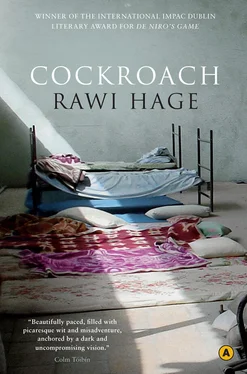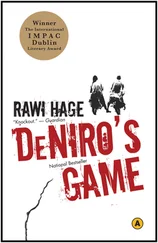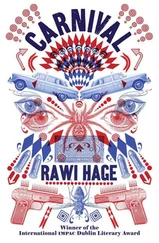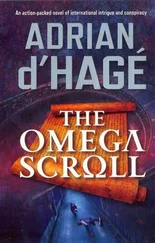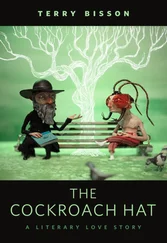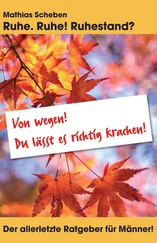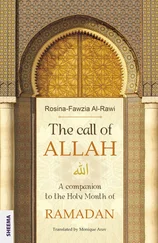But one day, I knew, I would be intimate with him. One day I would get to know him well. And I wouldn’t forget where he lived.
TWO DAYS LATER I was up before dawn. Through a small crack in the curtains I could see a blue-grey sky reflecting little waves of colour on the glass. I alternated opening one eye and then the other. One eye at a time. One streak of light at a time. And I stayed in bed to see the sky’s progression, the slow approach of the light, and I watched the wall get slowly, gradually brighter. Some objects on the floor couldn’t be fully seen, but I knew what they were: shoes, a dirty plate, an ashtray, and a chair. When the room was light I stood up, washed my face, and decided to walk down my street in the hour before the newspaper gets thrown on doorsteps and the squirrels dig up underground roots for their morning meals. I got dressed and went outdoors. It was a bearable day. The cold had mellowed, the wind was in retreat, the wet asphalt held streaks of neon light, reflections from shop signs that skimmed its surface in the shape of unreadable letters and words that lost their meanings when flattened and splattered on the ground. But then, who wants to know the meanings of words at this hour? Everything has turned into shapes and forms that confine you and guide you, between the city streets and building walls, to your final, inescapable destination.
I arrived at the blond man’s house. I stood across the street and waited for a minute. The cold didn’t bother me. I knew my reward would be grand: food and a morning glass of milk. Of course, the blond man would have milk. What well-established man does not own that exquisite liquid? But I couldn’t just stand there on the street for too long, not working, not moving. I would raise the neighbours’ suspicions. Everything on this street had to have a purpose. Stillness and piercing foreign eyes would soon be questioned by uniforms under whirling police-car lights. As I was drooling over my future looting, I saw the blond man’s door open. A large dog and the blond man, bundled and ready to jog, left the house. They reached the sidewalk and both started jogging, the dog trailing behind. That dog, it seemed, loved the colour red. There was no red-painted hydrant that didn’t interest him. The dog was also fascinated by upright, refined three-dimensional shapes. A true art connoisseur.
I turned and walked in the opposite direction. When I arrived at the street corner, I grew wings and I hurried back to the soil below the blond man’s garden, seeking pipes and the road to warmth. Inside, I ate my breakfast first and then went to the living room. It was a modest house for a man with such a respectable exterior and manners. There were books, of course, many on war and politics. No TV, believe it or not, not even in the bedroom. And no wife or kids. That is good, I thought. Why have the extra expense? It is enough that one has to pay lavishly for handsome clothing and oversized hardcover books. With bread and a glass of milk in hand, I went over to his desk. Sure enough, there was that leather briefcase he happily swung in the cold the other night when I followed him home. I finished my food, went back to the kitchen, and rinsed out the glass of milk. I opened the cupboard, looked for the hot sauce, and put a few drops in the dog’s bowl. Have some spicy food, and welcome to a new world, my dear friend. Bland food is passé. Curry and exotic food are in style. I picked up the briefcase and walked out of the house, calm as if everything were routine. I walked with my head down to work, to the office in the high building, in that morning hour when the trains clear the way so the bureaucrats can be on time.
LATER IN THE DAY I went down to the Café Artista. I looked for the professor. He was not in his usual seat. I asked the waitress where he was, and she pointed to the bathroom.
Indeed, his coat was on the chair. I sat in the chair and slipped my hand into his coat pockets. Nothing was there, nothing, not even a piece of a crumb.
When the professor saw me on his seat, he rushed towards me, rubbing his wet hands against the sides of his trousers. What are you doing in my chair?
Oh, I didn’t realize it was yours, I said.
Well, it is someone’s. There is a coat on it. It is reserved.
I stood up and pulled the blond man’s briefcase out of my bag. Twenty dollars, I said, showing it to him. Leather. Real leather. I swung the zipper back and forth and rattled the buckles up and down, opening and closing the little golden locks. Solid and light, I said, thinking that it was a good thing I had emptied the files and the pens and everything the briefcase had contained. It is light, I said. Light is in, light is a brilliant marketing tool, light meals, light women, everything is valued by its lightness these days.
The professor forgot about our territorial dispute. He picked up a napkin from the table and passed it around and between his fingers, looking at the briefcase.
Fifteen, I said, and pushed it towards his chest.
He held the briefcase. He flipped it over. He couldn’t help but take a peek inside. Is it yours? he asked me.
It is yours, I said, for ten dollars.
I do not buy stolen goods, he said.
Well, professor, I said, what land is not stolen, what seat is not claimed, what container is not the product of theft and destruction? We are all coyotes in this land.
Non, je ne peux pas faire ça. You should take it back to whomever you took it from. But the professor held the case tighter and closer as he said this.
Fine, I said. Just buy me lunch and a coffee to go, then.
I took the food and went to the back alley. I couldn’t eat in the presence of that dishonest hypocrite. I vowed I would never share a meal with him. Hypocrite. I knew he would soon walk the streets like a lawyer to an office. It is with objects and false acquisitions that he thinks he can assert his ideas and gain respect. Filth. Charlatan. Just like his new briefcase, he is an empty container made of skin-deep materials.
AT HOME I LEAFED through the files from the briefcase. One of the files had papers with a mix of Persian and English, and charts and tables, and what looked like a list of products for sale. I could pronounce the Persian words in the papers but I did not understand their meaning. So I read a few pages aloud, listening to my own voice uttering Persian without having a clue what it meant. I chanted the words like some kind of scripture. Ah ha! I thought. This is what it must be like for the faithful who repeat holy scripture in foreign languages without understanding a word.
Later I went downstairs and walked over to the taxi stand. I asked for Majeed, but no one had seen him. I was about to leave when a cab driver called me back and pointed to the end of the line. I saw Majeed lining up his car.
I walked over to him, opened the taxi door, got in, and slammed the door shut. I handed him the file and asked him, Can you read this? He flipped through the file, smiled, and nodded quietly. He read with attention and silence. Then he looked at me and said, Where did you get this?
Someone’s home, I said.
You stole this?
No, I found it, I said.
Can I keep it? I will read it carefully later and bring it back to you.
Yes, do that. I just want to know what they are selling in these papers. See? Look at this chart here. Allow me, please. You see? Here, starting from this page.
Do you want to go somewhere? Majeed asked me. I can drive you.
No, I live nearby.
Thank you for this, he said. I will look at these papers.
WHEN I TOLD SHOREH about the file she asked me why I had not told her about it immediately, and why I had given the file to Majeed and not to her.
I told her how the lists looked like products for sale. I said: I thought maybe I could bring the taxi driver into the deal for whatever was being sold. Maybe we could do business together somehow. You know, find out where the merchandise is being stored, and acquire it using his car. . I didn’t think that you would be interested in such things, I said to Shohreh.
Читать дальше
